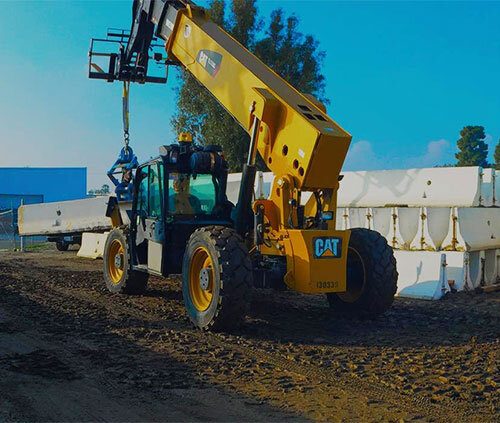Optimize Your Budget Plan by Recognizing the Expenses Connected With Building And Construction Tools Rentals
Recognizing the complete scope of prices linked with building and construction devices leasings is crucial for optimizing your budget plan. While the preliminary rental cost might seem uncomplicated, numerous extra expenditures-- such as transportation, gas surcharges, and upkeep-- can swiftly gather, influencing your economic planning. Furthermore, knowing various costs and the intricacies of rental arrangements can help avoid unexpected economic worries. What techniques can be utilized to successfully take care of these prices and ensure an extra effective rental experience?
Introduction of Rental Costs
When thinking about construction equipment leasings, comprehending the connected expenses is paramount for reliable budgeting and project preparation. Rental expenses can differ considerably based on several factors, including tools type, duration of leasing, and location. The first rental cost often mirrors the tools's market demand and its linked operational abilities, affecting the general expense.
Along with the base rental price, supplementary expenses may emerge, such as transport charges, gas additional charges, and upkeep charges. It is necessary to represent these additional expenditures to properly examine the complete expense of renting devices. In addition, the rental period can affect prices; longer rentals may receive discounted prices, while short-term leasings could sustain higher day-to-day costs.

Failure of Rental Rates
A thorough understanding of rental rates is important for contractors and project supervisors aiming to enhance their budget plans. Rental rates for construction tools generally include several parts, including base rates, time-based fees, and use fees.
Base rates are the core charges linked with the rental of the equipment, often determined by the type and size of the machinery. These prices can differ dramatically, influenced by variables such as devices demand, schedule, and regional market fads. Time-based fees, which may be daily, weekly, or monthly, offer to fit various job timelines and rental durations.
Furthermore, rental rates might include use fees, which are appropriate when equipment is made use of beyond a defined threshold, ensuring that the rental business can account for damage. Seasonal need changes can additionally impact rental prices, with peak building and construction periods usually commanding greater prices.
Additionally, understanding the rental business's plans concerning upkeep and insurance policy can provide additional understanding into the general cost structure. By analyzing these elements, contractors can make informed decisions, making certain the option of rental tools aligns with both job needs and budget restrictions.
Extra Costs to Consider
Understanding the ins and outs of added costs is essential for service providers to manage their general service expenses efficiently. Past the conventional rental prices, various additional charges can significantly affect the overall expense of tools rental. These charges typically include distribution and pick-up fees, which can differ based upon distance and logistics associated with carrying the tools to and from the work website.
Moreover, some rental business might impose gas additional charges if the devices is returned with much less gas than when leased. It is also important to know potential cleaning charges, specifically for specific devices that calls for thorough maintenance after use.

Completely examining the rental contract and clearing up these extra costs in advance can assist service providers prevent unanticipated expenses and ensure that budgets continue to be intact throughout the task lifecycle.
Repair And Maintenance Costs
Normal maintenance and repair expenditures are often ignored factors that can substantially influence the general cost of construction devices rentals. When leasing equipment, it is essential to take into consideration not only the rental costs yet likewise the prospective costs related to maintaining the equipment in optimum operating problem.
Lots of rental index business include fundamental maintenance as part of the rental contract; however, more unexpected break downs or substantial fixings can bring about added expenses. It's necessary to examine the rental contract thoroughly to comprehend what upkeep services are covered and what obligations fall on the renter.
Moreover, equipment that is not well-kept can result in inadequacies at work website, possibly triggering hold-ups and boosting task costs. To alleviate these dangers, it is a good idea to perform regular inspections and keep open communication with the rental provider regarding any kind of concerns that develop throughout use.
Insurance Coverage and Liability Prices
Insurance and liability prices are essential parts that can considerably influence the total cost of building and construction tools services (heavy equipment rental). These expenses make certain that both the rental company and the client are shielded from possible monetary losses emerging from crashes, damage, or theft throughout the rental period

In addition, clients need to understand any deductibles or exemptions in the insurance plan, as these can influence potential out-of-pocket costs. Understanding the terms and conditions of blog any insurance coverage is crucial to avoid unforeseen costs. Eventually, budgeting for insurance policy and liability costs can aid ensure a smoother rental experience and secure against financial dangers connected with construction projects.
Conclusion
In verdict, a comprehensive understanding of the expenses connected with construction devices services is crucial for efficient budget plan administration. Eventually, notified decision-making regarding tools services contributes to the overall success of building and construction undertakings.
Rental expenses can vary significantly based on numerous aspects, including tools type, duration of leasing, and location (construction equipment rentals). The rental period can affect pricing; longer services may certify for reduced prices, while short-term services may sustain higher day-to-day charges
By performing complete research and involving with trustworthy rental business, service providers can successfully browse the intricacies of rental prices, inevitably maximizing their economic sources.
Beyond the conventional rental prices, various auxiliary charges can substantially influence the total expense of tools rental. Rental business often offer obligation insurance policy that covers injuries to third celebrations or damages to home, while tools damage insurance can cover the cost of repairs or substitute if the leased equipment is damaged.